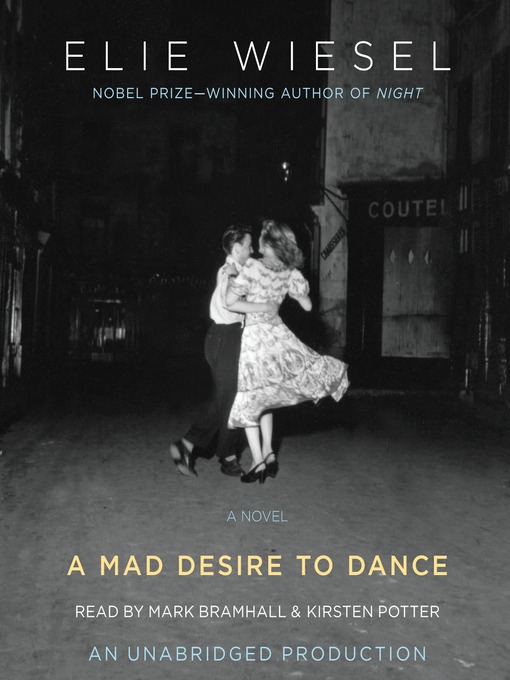
A Mad Desire to Dance
کتاب های مرتبط
- اطلاعات
- نقد و بررسی
- دیدگاه کاربران
نقد و بررسی

The hero of Elie Wiesel's A MAD DESIRE TO DANCE survived the horrors of WWII but is unable to live in peacetime. The novel is an intense journey into the mind of a miserable man who has suffered overwhelming personal loss and who is trapped by his fear of life itself. Narrator Mark Bramhall becomes Doriel, who moves the book along by talking, thinking, and philosophizing. His is a circular logic that ultimately leaves him powerless and fearful. Bramhall's timbre, inflection, and tone reveal the sadness of Doriel's soul and his desperate hope as he reaches out to a psychologist. He silently begs for her help even as he frustrates her. Kirsten Potter skillfully portrays the doctor's calm encouragement of her patient--as much as she mentally screams in frustration. M.S. (c) AudioFile 2009, Portland, Maine

Starred review from November 24, 2008
Nobel laureate Wiesel (Night
) grapples with questions of madness, sadness and memory in this difficult but powerful novel. Doriel Waldman, a Polish Jew born in 1936, survived the occupation in hiding with his father while his mother made a reputation for herself in the Polish resistance. But he did not escape tragedy: his two siblings were murdered and his parents died in an accident shortly after the war. At the novel's opening, he is 60 years old, miserable, alone and on the verge of insanity. Most of the novel unfolds in the office of Doriel's shrink, Dr. Thérèse Goldschmidt, where he reveals himself to be an uncooperative patient, and his aggressive, obsessive rants on the origins of his troubles make for difficult reading. But Wiesel handles the situation expertly, and as Thérèse draws Doriel out, a multilayered narrative emerges: the journey through sadness and toward redemption; a meditation on the hand dealt to Holocaust survivors; and a valuable parable on the wages of human trauma. While the novel is not always easy sledding, there are ample rewards—intellectual and visceral—for the willing reader.

























دیدگاه کاربران